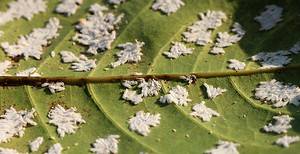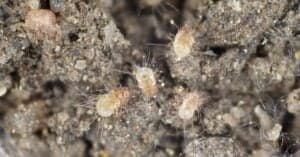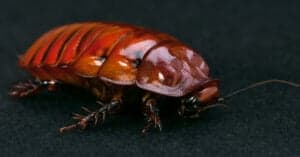Quick Answer
Yes! Tea tree oil keeps bugs away. Keep reading below to discover the best ways to use it.
Tea tree oil is an age-old natural topical remedy to treat bug bites, minor cuts, nail fungus, and acne. Along with these medicinal uses, tea tree oil has a beautiful smell that deodorizes a room. Tea tree (Melaleuca alternifolia) originates from the southeast Australian coast, and the oil gets extracted from the plant’s leaves. The aboriginal people of Australia have long used tea tree oil as an antiseptic and for herbal medicine. Tea tree oil has a refreshing aroma. You will find the ingredients among aromatherapy and self-care products just about anywhere. But what do insects think about tea tree oil? Does tea tree oil really keep bugs away?
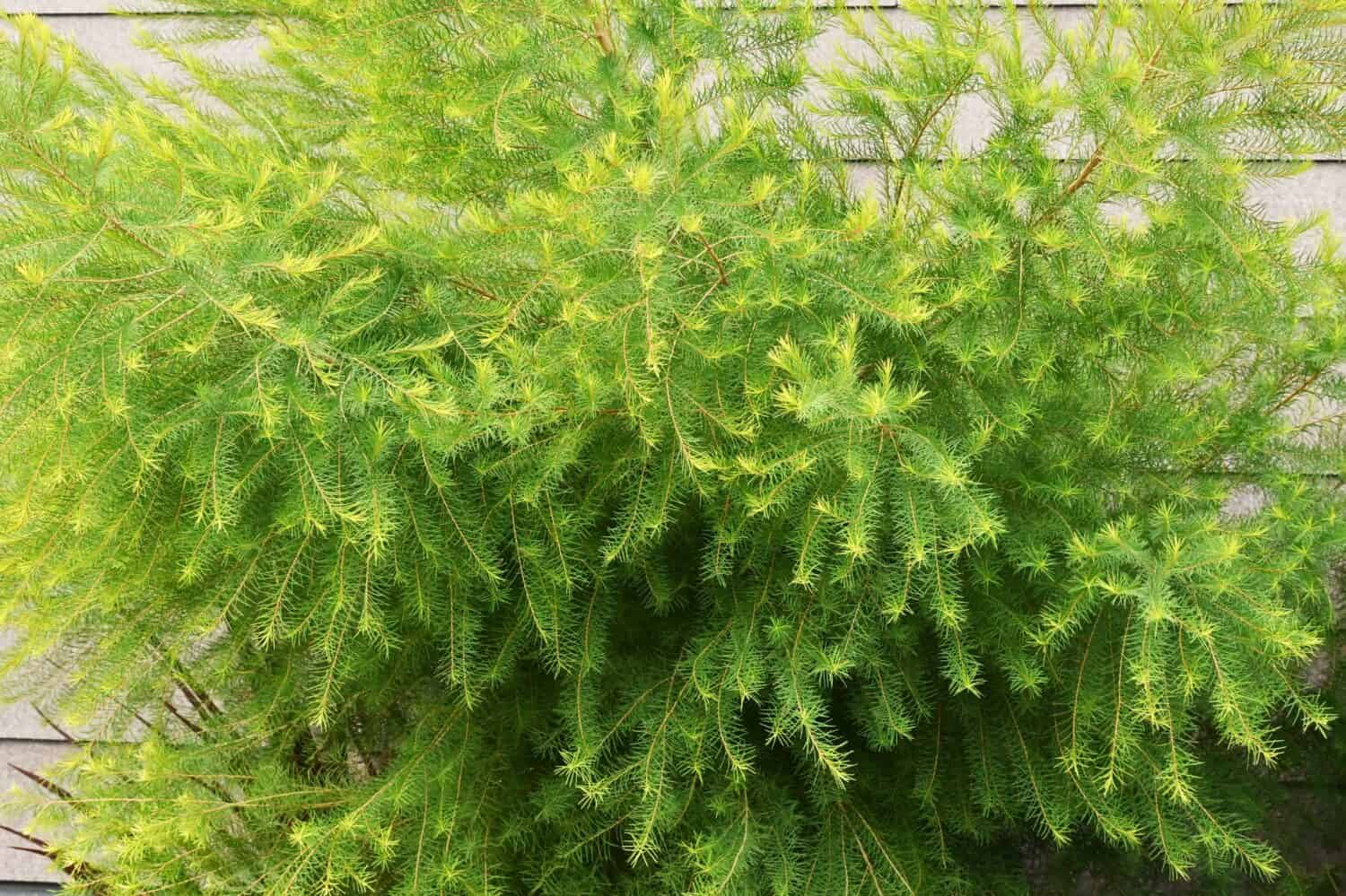
Tea tree oil is extracted from the leaves of tea trees (
Melaleuca alternifolia), which originates from the southeast Australian coast.
©tamu1500/Shutterstock.com
Does Tea Tree Oil Keep Bugs Away?
Yes! Tea tree oil keeps bugs away. Studies showed that cows treated with a 5% concentration of tea tree oils had 61% fewer flies on them than those without, showing the oil has insecticidal properties. In addition, tea tree oil can be used in agriculture to keep pesky ants off produce.
What insects does tea tree oil repel? All the insects you want it to! The bugs include flies, bed bugs, ants, mosquitoes, ticks, fleas, bees, and other stinging insects. It can even treat lice! The oil soaks into the bug’s exoskeleton and suffocates them. In addition, the oil has a strong odor which insects can’t tolerate the smell.
Essential oils, such as tea tree oil, may even be stronger than DEET, the infamous insect repellent. However, tea tree oil is a safer and more natural alternative.
Other Benefits of Tea Tree Oil
Tea tree oil is a versatile oil with a crisp and clean scent. The unique aroma can be described as earthy with hints of herbs. It is common in the self-care industry to mix tea tree oil with other essential oils, such as lavender and eucalyptus, to create a variety of blends and scents.
Tea tree oil has other amazing topical and aromatic benefits:
- It contains Terpinen-4-ol, which is an anti-inflammatory
- Antifungal and antibacterial
- It can be used as a hand sanitizer
- Antiseptic for minor cuts and abrasions
- Clean and sanitize surfaces
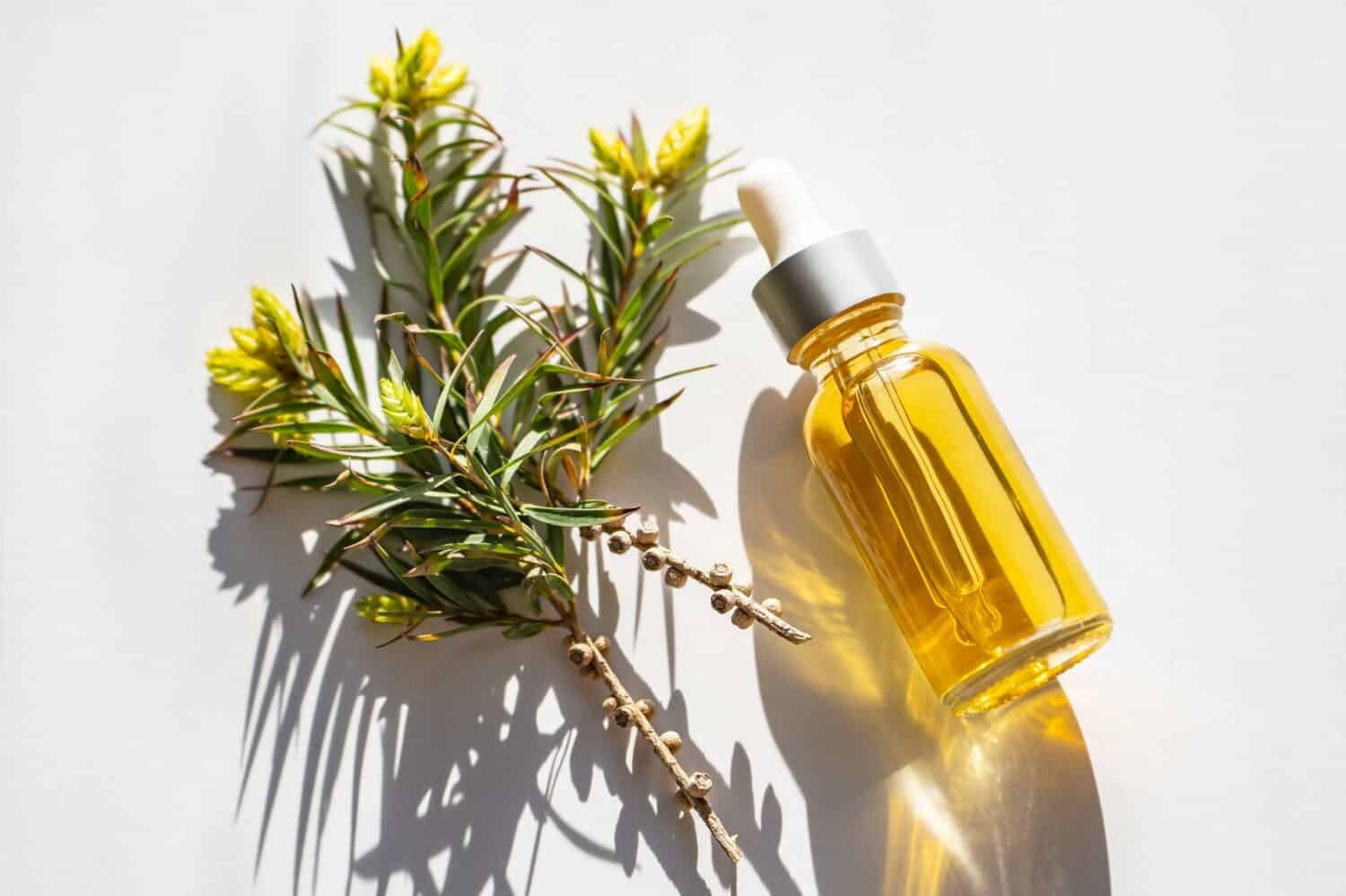
Tea tree oil has a fresh, earthy scent and is popular in aromatherapy and self-care products.
©Iv-olga/Shutterstock.com
How to Use Tea Tree Oil as an Insect Repellent
Tea tree oil might not be as effective as commercial insecticides, but it does a great job of repelling insects. In addition, the concentration of tea tree oil matters, but the recipe is simple. All you will need is tea tree oil and an empty glass spray bottle.
How to mix tea tree oil for an insect repellent:
- Rinse an empty spray bottle
- Add 20 drops of tea tree oil
- Fill the bottle with water
- Shake well and spray
You can also spray the solution around your plants to keep bugs out of your garden. However, do not spray the plants directly, as the tea tree oil can burn them or kill the plant. If you see ants or other bugs in or near your home, spray these areas generously. In addition, you can soak cotton balls with tea tree oil and place them in areas of your home where bugs may enter to deter them.
Tea tree oil can make an excellent topical insect repellent. Put 2 ounces of tea tree oil in a large spray bottle and fill it with water. Before spraying a large area of your skin, test it on a small area first. Once you feel it is safe to apply, spray your skin with the mixture and rub it in. Spray more as needed.
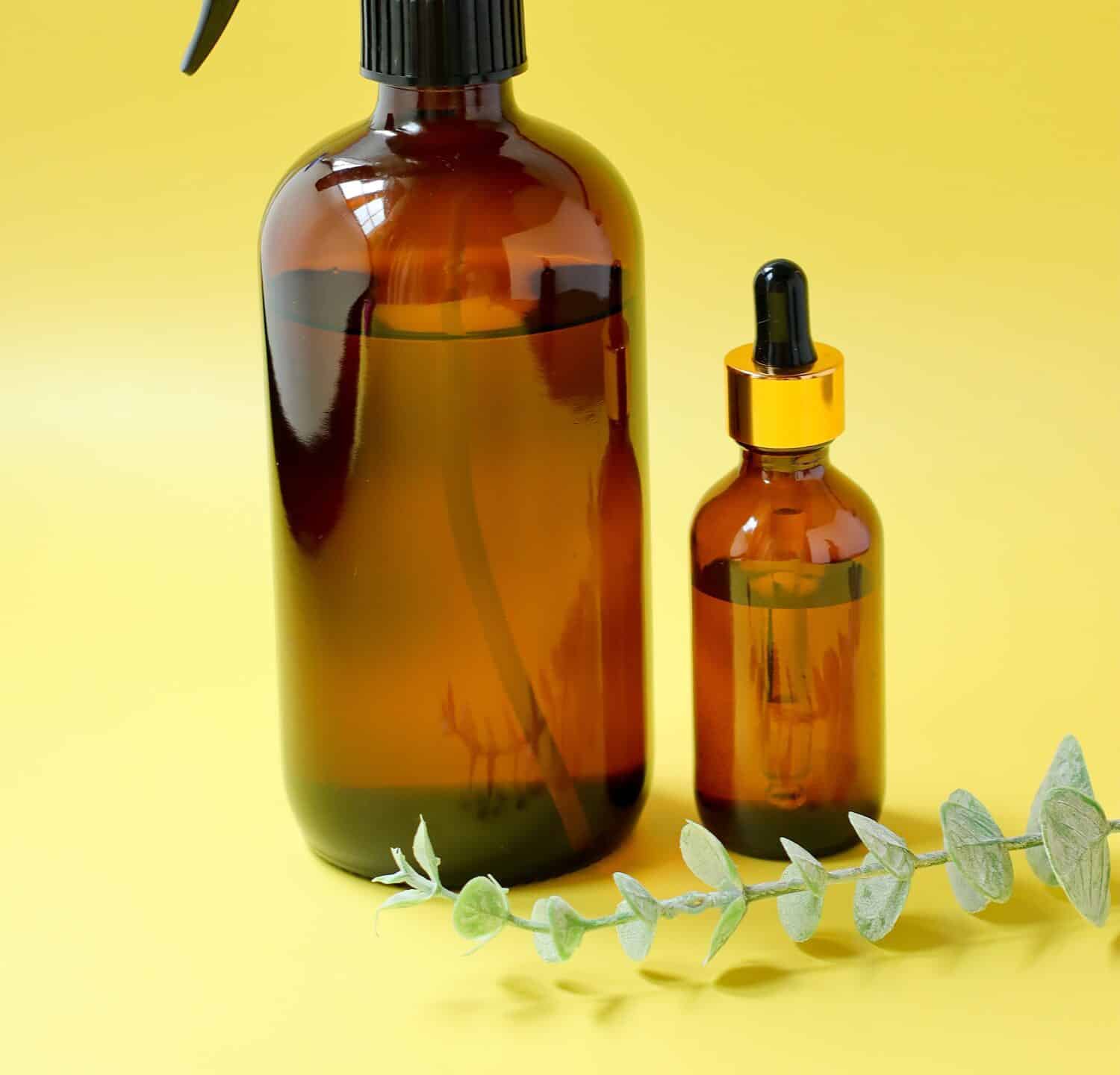
Mix tea tree oil and water in a glass spray bottle to make an easy insecticide to keep the bugs away.
©My Bokeh Life/Shutterstock.com
Caution Using Tea Tree Oil
Tea tree oil is safe to use topically and often used to treat various skin conditions, such as acne. However, people with sensitive skin may experience irritation. If you have never used tea tree oil on your skin, apply a small amount on a small area of the skin. Wait 24 hours to see if a reaction occurs. If you suffer from skin conditions, such as eczema, don’t apply tea tree oil on your skin, as it can worsen the condition.
Symptoms can include:
- Dermatitis
- Itching
- Redness
- Burning
- Stinging
- Other skin irritations
You should not swallow tea tree oil as it can be toxic. Humans can experience loss of muscle coordination, confusion, coma, and potential breathing problems when ingesting tea tree oil. In addition, tea tree oil is toxic to pets, such as dogs and cats. Research shows animals can develop nervous system conditions or tremors when tea tree oil is applied topically or ingested orally. Therefore, keep tea tree oil out of reach of children and pets.

Tea tree oil can cause tremors and nervous system problems in dogs and cats when ingested or applied topically.
©Beach Creatives/Shutterstock.com
Natural Bug Repellants
Not everyone likes using commercial pesticides or synthetic chemicals in or around their home. Handling chemicals inappropriately or prolonged exposure can cause health problems, such as respiratory conditions or skin irritations. In addition, commercial pesticides could harm the insects you want to keep around, such as butterflies or bees.
Tea tree oil is not the only remedy for keeping bugs away! Let’s take a look at other natural bug repellents you should consider:
- Garlic oil: A great way to keep ticks at bay is by using garlic oil in your garden.
- Dill essential oil: If you have a cockroach problem, consider using dill essential oils.
- Peppermint essential oil: Not only does peppermint essential oil smell great, but it can repel and kill mosquitos.
- Citrus oil: Citrus oil is growing in popularity and is known for repelling flies, aphids, and fleas.
Keep in mind some essential oils can attract bugs. Some of these oils include Melissa oil and lemon oil. These oils attract insects to your home and may create the breeding ground you’re trying to avoid.
How to Keep Bugs From Invading Your Home
You can take some active steps to keep bugs away from your home. Inspect your garage. Are there ways you can declutter and remove old boxes of things you haven’t looked at in years? Start by decluttering and removing the bug’s hiding spots from your property.

Adding screens to windows and doors will keep insects out of your house.
©ronstik/Shutterstock.com
Your beautiful garden is a breeding ground for bugs. Remove old mulch and replace it with a fresh layer. Avoid adding too much mulch, as it can create a moist breeding ground for critters. Clean up around your bushes and trees, and trim dead leaves and branches that can break and fall.
Do you keep firewood on your property? If so, ensure it is kept a good distance from your home. Firewood attracts damaging insects such as carpenter ants and termites. Raising the firewood off the ground, such as placing it on pallets, is another good way to keep the wood from getting moist when it rains.
More tips and tricks to keep bugs out of your home:
- Add screens to windows and doors
- Turn fans on around the house to deter winged bugs
- Empty trash cans often and keep the house clean and free of clutter
- Store food in sealed containers
- Keep your eyes peeled for nesting grounds — find the areas of your home that may be a breeding ground for insects.
Lastly, know when to hang the white flag. If your insect problem is out of hand, contact pest control professionals. Some infestations are too big to conquer with natural remedies, and commercial pesticides are the only option.
Thank you for reading! Have some feedback for us? Contact the AZ Animals editorial team.





